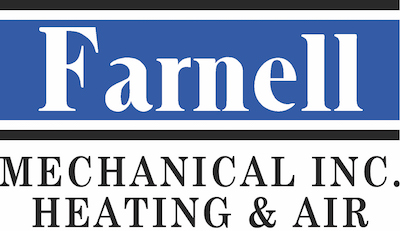
We spend lots of time in our homes. In reality, the Environmental Protection Agency (EPA) has estimated being inside comprises 90% of our time. Having said that, the EPA also says your indoor air can be three to five times dirtier than outside your home.
That’s since our homes are firmly sealed to increase energy efficiency. While this is fantastic for your heating and cooling expenses, it’s not so fantastic if you’re a part of the 40% of the population with respiratory allergies.
When outdoor ventilation is insufficient, pollutants such as dust and volatile organic compounds (VOCs) may get stuck. Consequently, these pollutants might aggravate your allergies.
You can improve your indoor air quality with clean air and regular dusting and vacuuming. But if you’re still having issues with symptoms when you’re at your house, an air purifier may be able to provide assistance.
While it can’t eliminate pollutants that have settled on your couch or flooring, it could help clean the air traveling around your residence.
And air purification has also been scientifically confirmed to help reduce some allergic symptoms, according to the American College of Allergy, Asthma and Immunology. It may also be helpful if you or someone in your household has a lung condition, such as emphysema or COPD.
There are two kinds, a portable air purifier or a whole-home air purifier. We’ll go over the distinctions so you can learn what’s correct for your home.
Whole-House Air Purifier vs. Portable Air Purifiers
A portable air purifier is for a lone room. A whole-house air purifier accompanies your home comfort equipment to treat your full house. Some models can work by themselves when your HVAC unit isn’t on.
What’s the Best Air Purifier for Allergies?
Seek a model with a High Efficiency Particulate Air (HEPA) filter. HEPA filters are placed in hospitals and deliver the best filtration you can buy, as they trap 99.97% of particles in the air.
HEPA filters are even more powerful when combined with an ultraviolet (UV) germicidal light. This powerful combination can destroy dust, dander, pollen and mold, all of which are common allergens. For the greatest in air purification, evaluate a unit that also has a carbon-based filter to eliminate household smells.
Avoid using an air purifier that creates ozone, which is the main ingredient in smog. The EPA cautions ozone might aggravate respiratory issues, even when emitted at minor concentrations.
The Allergy and Asthma Foundation of America has compiled a list of questions to think over when buying an air purifier.
- What can this purifier take out from the air? What doesn’t it take out?
- What’s its clean air delivery rate? (A higher figure means air will be freshened more rapidly.)
- How frequently does the filter or UV bulb need to be replaced]? Can I do that without help?
- How much do new filters or bulbs cost?
How to Reduce Seasonal Allergy Symptoms
Want to receive the {top|most excellent|best] performance from your new air purification system? The Mayo Clinic suggests taking other steps to limit your exposure to seasonal allergy triggers.
- Stay inside and keep windows and doors closed when pollen counts are high.
- Have other household members trim the lawn or pull weeds, since these jobs can trigger symptoms. If you are required to do these chores on your own, you may want to consider wearing a pollen mask. You should also bathe without delay and change your clothes once you’re completed.
- Avoid drying laundry outside your home.
- Use air conditioning while at home or while you’re on the road. Consider installing a high efficiency air filter in your residence’s heating and cooling unit.
- Even out your home’s humidity percentage with a whole-house dehumidifier.
- Hardwood, tile or linoleum are the best flooring types for decreasing indoor allergens. If your residence has carpet, install a HEPA filter on your vacuum cleaner.
Let Our Pros Take Care of Your Indoor Air Quality Requirements
Want to move forward with installing a whole-house air purifier? Give our professionals a call at 334-524-2458 or contact us online to get an appointment. We’ll help you locate the ideal system for your residence and budget.
